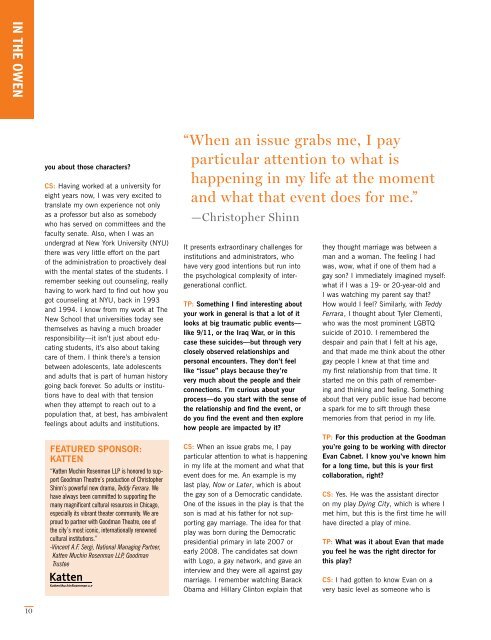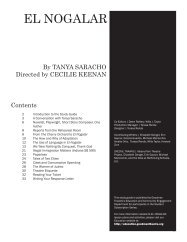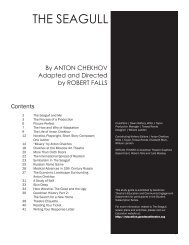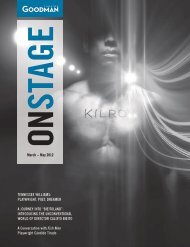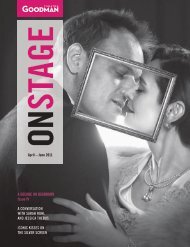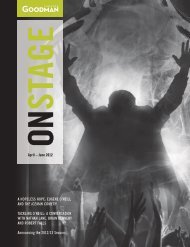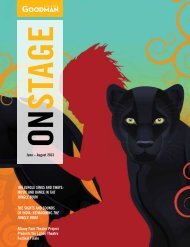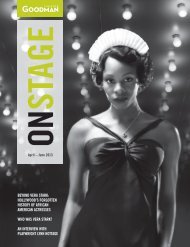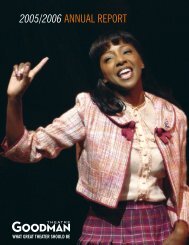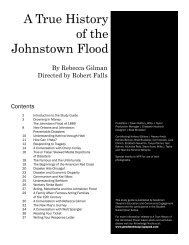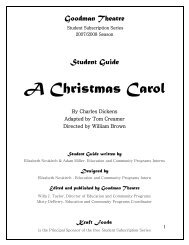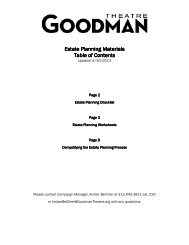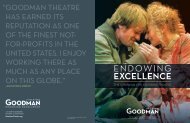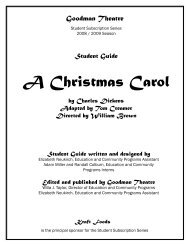You also want an ePaper? Increase the reach of your titles
YUMPU automatically turns print PDFs into web optimized ePapers that Google loves.
IN THE OWEN<br />
you about those characters?<br />
CS: Having worked at a university for<br />
eight years now, I was very excited to<br />
translate my own experience not only<br />
as a professor but also as somebody<br />
who has served on committees and the<br />
faculty senate. Also, when I was an<br />
undergrad at New York University (NYU)<br />
there was very little effort on the part<br />
of the administration to proactively deal<br />
with the mental states of the students. I<br />
remember seeking out counseling, really<br />
having to work hard to find out how you<br />
got counseling at NYU, back in 1993<br />
and 1994. I know from my work at The<br />
New School that universities today see<br />
themselves as having a much broader<br />
responsibility—it isn’t just about educating<br />
students, it’s also about taking<br />
care of them. I think there’s a tension<br />
between adolescents, late adolescents<br />
and adults that is part of human history<br />
going back forever. So adults or institutions<br />
have to deal with that tension<br />
when they attempt to reach out to a<br />
population that, at best, has ambivalent<br />
feelings about adults and institutions.<br />
Featured Sponsor:<br />
KATTEN<br />
“Katten Muchin Rosenman LLP is honored to support<br />
<strong>Goodman</strong> <strong>Theatre</strong>’s production of Christopher<br />
Shinn’s powerful new drama, Teddy Ferrara. We<br />
have always been committed to supporting the<br />
many magnificent cultural resources in Chicago,<br />
especially its vibrant theater community. We are<br />
proud to partner with <strong>Goodman</strong> <strong>Theatre</strong>, one of<br />
the city’s most iconic, internationally renowned<br />
cultural institutions.”<br />
-Vincent A.F. Sergi, National Managing Partner,<br />
Katten Muchin Rosenman LLP, <strong>Goodman</strong><br />
Trustee<br />
“When an issue grabs me, I pay<br />
particular attention to what is<br />
happening in my life at the moment<br />
and what that event does for me.”<br />
—Christopher Shinn<br />
It presents extraordinary challenges for<br />
institutions and administrators, who<br />
have very good intentions but run into<br />
the psychological complexity of intergenerational<br />
conflict.<br />
TP: Something I find interesting about<br />
your work in general is that a lot of it<br />
looks at big traumatic public events—<br />
like 9/11, or the Iraq War, or in this<br />
case these suicides—but through very<br />
closely observed relationships and<br />
personal encounters. They don’t feel<br />
like “issue” plays because they’re<br />
very much about the people and their<br />
connections. I’m curious about your<br />
process—do you start with the sense of<br />
the relationship and find the event, or<br />
do you find the event and then explore<br />
how people are impacted by it?<br />
CS: When an issue grabs me, I pay<br />
particular attention to what is happening<br />
in my life at the moment and what that<br />
event does for me. An example is my<br />
last play, Now or Later, which is about<br />
the gay son of a Democratic candidate.<br />
One of the issues in the play is that the<br />
son is mad at his father for not supporting<br />
gay marriage. The idea for that<br />
play was born during the Democratic<br />
presidential primary in late 2007 or<br />
early 2008. The candidates sat down<br />
with Logo, a gay network, and gave an<br />
interview and they were all against gay<br />
marriage. I remember watching Barack<br />
Obama and Hillary Clinton explain that<br />
they thought marriage was between a<br />
man and a woman. The feeling I had<br />
was, wow, what if one of them had a<br />
gay son? I immediately imagined myself:<br />
what if I was a 19- or 20-year-old and<br />
I was watching my parent say that?<br />
How would I feel? Similarly, with Teddy<br />
Ferrara, I thought about Tyler Clementi,<br />
who was the most prominent LGBTQ<br />
suicide of 2010. I remembered the<br />
despair and pain that I felt at his age,<br />
and that made me think about the other<br />
gay people I knew at that time and<br />
my first relationship from that time. It<br />
started me on this path of remembering<br />
and thinking and feeling. Something<br />
about that very public issue had become<br />
a spark for me to sift through these<br />
memories from that period in my life.<br />
TP: For this production at the <strong>Goodman</strong><br />
you’re going to be working with director<br />
Evan Cabnet. I know you’ve known him<br />
for a long time, but this is your first<br />
collaboration, right?<br />
CS: Yes. He was the assistant director<br />
on my play Dying City, which is where I<br />
met him, but this is the first time he will<br />
have directed a play of mine.<br />
TP: What was it about Evan that made<br />
you feel he was the right director for<br />
this play?<br />
CS: I had gotten to know Evan on a<br />
very basic level as someone who is<br />
10


